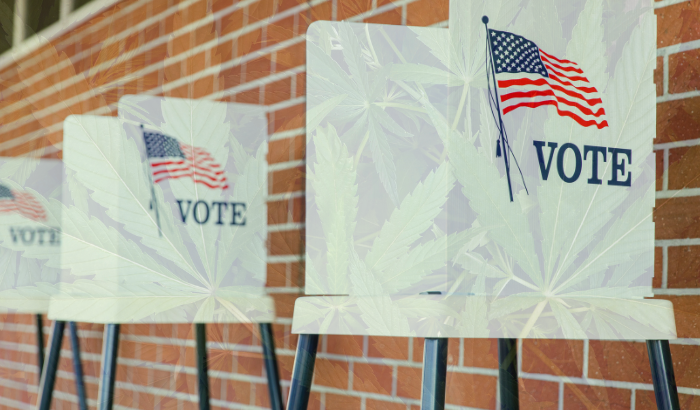
CCC advances discussion on “two-driver” rule, drops to “no” towns, and other delivery issues. Votes could come in November or December.
At last Thursday’s meeting of the Massachusetts Cannabis Control Commission, members and supporting staffers spent more than two hours addressing potential changes to the Marijuana Courier (which picks up products from retailers and delivers to customers) and Marijuana Delivery Operator (which can purchase products wholesale) license types. Holders of these licenses have asked for tweaks including to the rule that requires their companies to put two employees on the road together, and say they are already struggling with the two-agent stipulation being especially burdensome.
Other relevant topics that CCC members began to discuss last week include: deliveries to “no” towns which currently ban cannabis; deliveries to hotels; the number of licenses these operators can hold; the frequency with which drivers must communicate with dispatchers; and allowing delivery companies to repackage products. (You can see our longform coverage here, and read the detailed requests of operators here.)
At their followup meeting this Monday, Commissioner Kimberly Roy noted that the work around delivery businesses is apropos, since the CCC is set by statute to review the license category two years after the first delivery was made—which is next April. But while any changes the body ends up making will likely happen before that deadline and ahead of 2024, there were no votes today. Rather, commissioners and staff members will do more research in anticipation of a vote at their November or December meeting.
Regarding deliveries to “no” towns, the CCC legal department has been charged with putting together an analysis. They’re looking at “statutory schemes both in the commonwealth but also other jurisdictions,” as well as comparisons to other comparable industries (presumably including alcohol and prescription drugs, which do not have such restrictions in Mass). Acting CCC Gen. Counsel Andrew Carter said his team is “developing legal options for the board to contemplate,” and are aiming to have a report in the November-December time frame for a “full analysis.”
On the two-agent question, CCC Government Affairs and Policy Dir. Matt Giancola said their “government affairs and policy team has been engaging with other departments around the country” to see if there have been “notable incidents” stemming from having just one delivery agent. So far, Giancola said, states have responded that there have been few if any incidents in regulated markets nationwide. Commissioners also addressed the differences between delivery operators that serve consumers and third-party companies which transport wholesale weight between producers and dispensaries, noting that a trade group representing Mass cannabis transporters has also asked for clarity around these issues but, unlike delivery and courier operators, wants to keep two agents in a vehicle since they carry up to a million dollars worth of product at one time.
The repackaging question addressed allowing delivery operators to, for example, purchase bulk flower and break it down into prerolls. Commissioner Roy said, “We need to ensure sanitary conditions pursuant to our regulations.” To which Commissioner Nurys Camargo agreed: “Everything will have to be in place,” from new standard operating procedures to additional site visits and perhaps training and further conversations, adding, “I want to make sure that any language we put forward on any of these is very clear.” Acting Chair Ava Callender Concepcion seconded that all of the above is needed, while Commissioner Bruce Stebbins said, “I think it’s a good idea to move forward with keeping in mind all our licensees will have to comply with” such regulations.
While most classes of cannabis operators in Mass are currently able to have up to three adult-use licenses, another issue addressed by regulators in this realm is how delivery and courier businesses can only have two. Policy Dir. Giancola said the CCC is looking into the original intent of the limitation, but recalled a concern that companies, if able to expand to three licenses, could potentially block other Social Equity applicants from getting in on the action. Ultimately, they suggested, this won’t be such a heavy lift; Acting Gen. Counsel Carter noted, “Our statute does set licensing caps, but [the cap] is three [licenses], and in this instance it is two, so there is no conflict with the statute.”
And regarding delivery to hotels, which are currently restricted, Camargo said the issue is “another outlier for now,” and not one of the specific delivery topics they set out to address, but added that it’s certainly in-bounds and worthy of consideration. “We would have to do some work,” she added, such as communicating with the hospitality industry directly.
“Whatever decisions we make, they’re going to last three to five years until new commissioners come and start picking through them,” Camargo said about the overall process, adding that she’s proud of the work being done on behalf of Social Equity and Economic Empowerment licensees (who currently have exclusive access to courier and delivery licenses). “I am the social justice chair,” she said, “but that doesn’t mean I own equity. It’s for all of us.”Chris Fevry, a co-founder of Your Green Package who signed the aforementioned letter sent by stakeholders to commissioners as well as a followup letter after last Thursday’s meeting, told Talking Joints Memo he is pleased by the progress. “I think we’re moving in the right direction,” he said.























